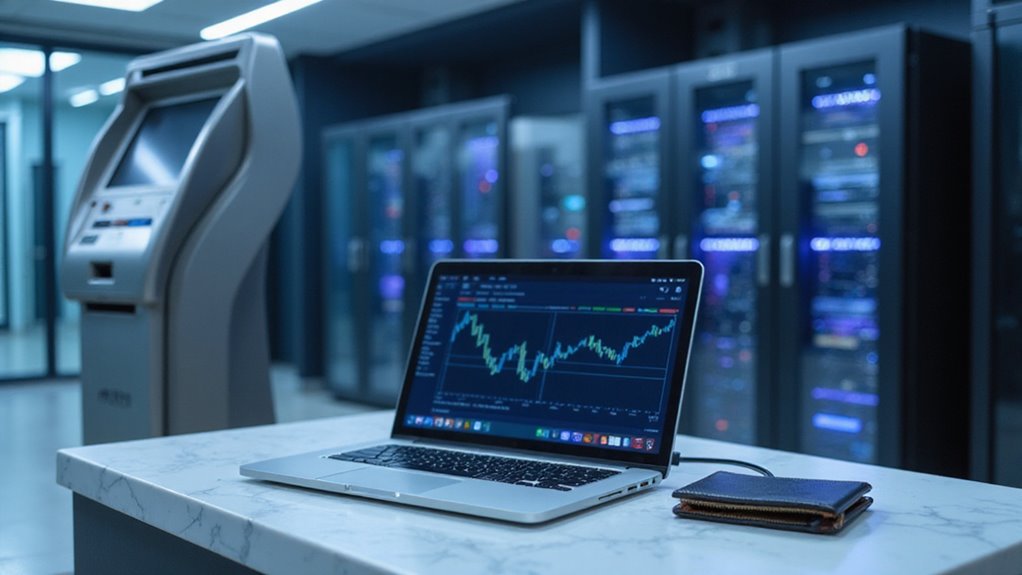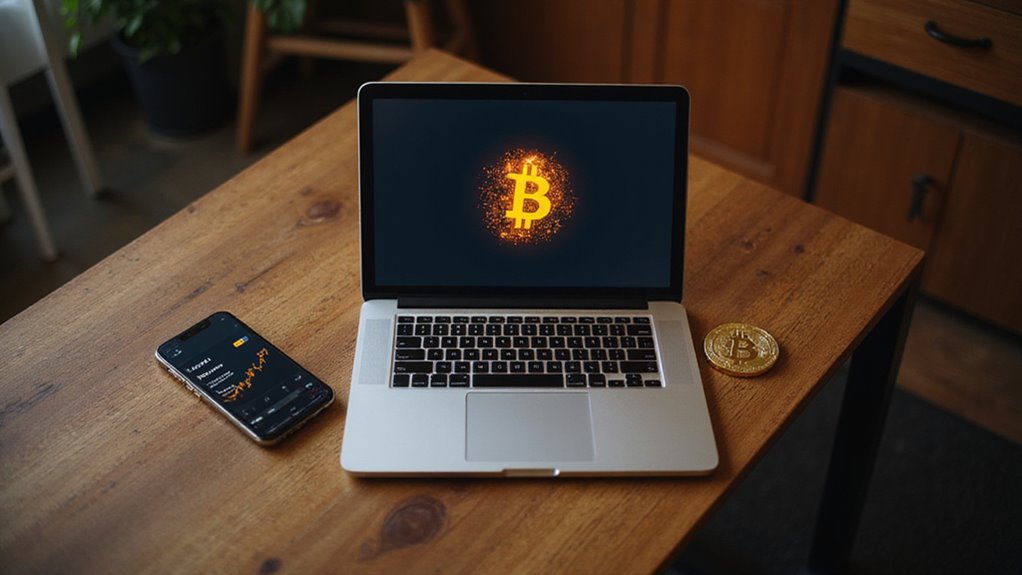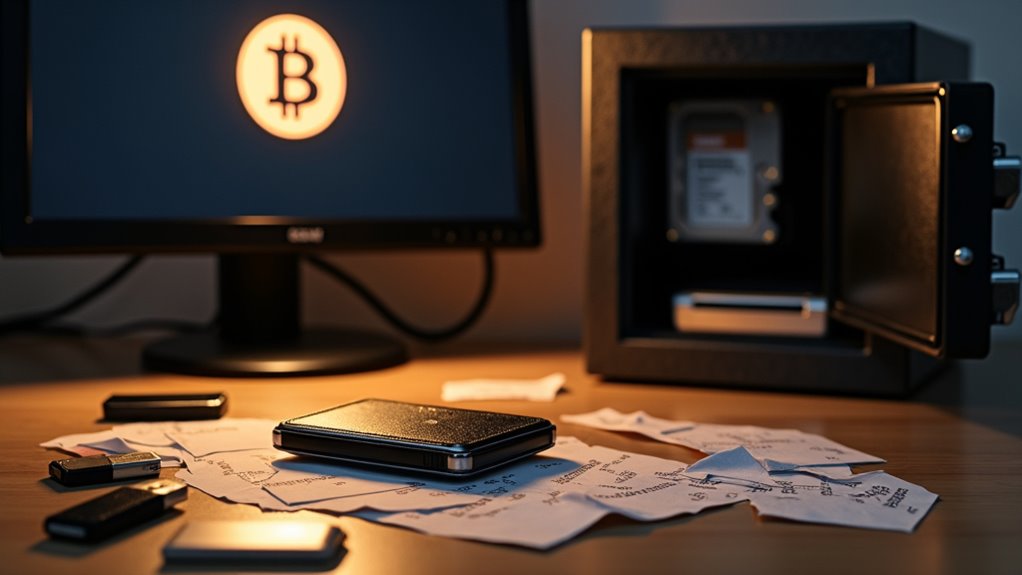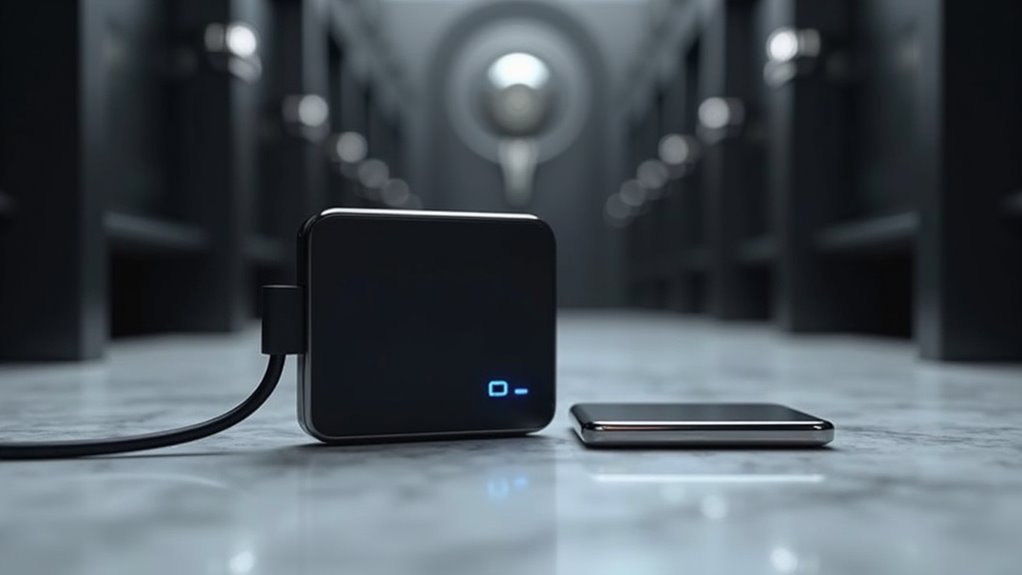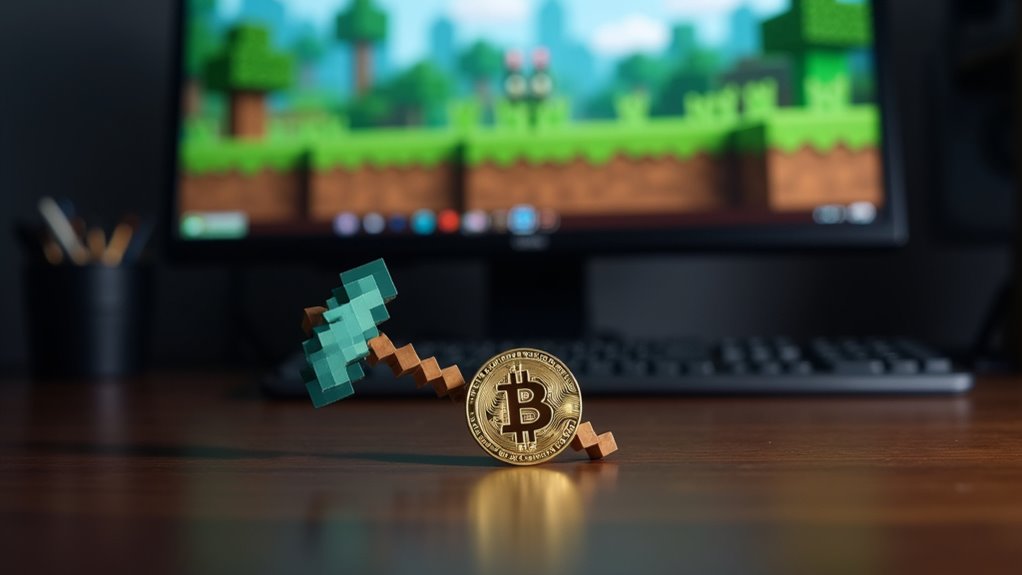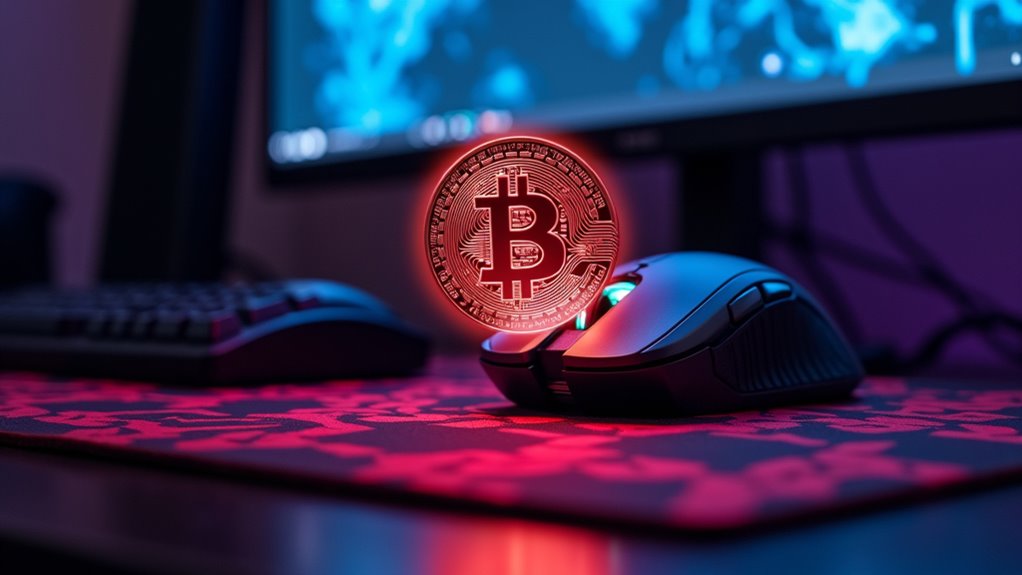Bitcoin’s gone mainstream, and there are plenty of paths to acquire some. Major cryptocurrency exchanges like Coinbase and Binance act as digital gold merchants, while Bitcoin ATMs offer a cash-to-crypto option (with hefty fees). The serious players mine Bitcoin through industrial operations, though those laptop mining days are long gone. Hardware wallets like Trezor and Ledger keep the coins secure once obtained. The cryptocurrency wild west isn’t so wild anymore, but there’s still plenty to investigate.

Looking to get your hands on some Bitcoin? The crypto universe isn’t exactly hiding these days – it’s practically screaming for attention from every digital corner. Cryptocurrency exchanges like Coinbase, Binance, and Kraken stand at the forefront, serving as the go-to marketplaces where millions of people trade their traditional money for digital gold. Kraken’s impressive reach across over 190 countries makes it a truly global player in the cryptocurrency exchange market.
Cryptocurrency has gone mainstream, with major exchanges now serving as digital gold dealers for the masses.
For those who prefer the old-school approach, Bitcoin ATMs are popping up like mushrooms in cities worldwide. Sure, their fees might make you wince, but hey – convenience costs money. These machines let you feed in cash and spit out Bitcoin faster than you can say “cryptocurrency.” Staying informed about Bitcoin ATMs and other developments is easy through Bitcoin Magazine, which has been covering Bitcoin-specific news since 2012.
The more tech-savvy crowd might venture into mining operations. Bitcoin mining isn’t exactly a hobby anymore – it’s evolved into a full-blown industrial operation requiring serious hardware and enough electricity to power a small town. The days of mining Bitcoin on your laptop are long gone, folks. The process requires solving complex puzzles to secure the network and earn newly minted coins.
Security-conscious individuals often turn to hardware wallets like Trezor and Ledger. These little devices look like USB sticks but act like Fort Knox for your digital assets. Cold storage isn’t just a fancy term – it’s what helps people sleep at night knowing their Bitcoin isn’t sitting on some exchange waiting to be hacked.
Trading platforms have gotten surprisingly user-friendly. Gemini caters to the suit-and-tie crowd with its focus on compliance, while Crypto.com throws in fancy debit cards and earn programs to sweeten the deal. eToro even lets you copy other traders’ moves, though that’s about as risky as it sounds.
Investment strategies vary wildly. Some people swear by dollar-cost averaging, methodically buying small amounts over time. Others prefer the HODL approach – basically sitting on their Bitcoin like a digital dragon hoarding treasure. Whatever the method, one thing’s clear: Bitcoin has moved from the shadows of the internet into the spotlight of mainstream finance. Just remember, this wild west of finance comes with its own sheriff – regulatory compliance is no joke anymore.
